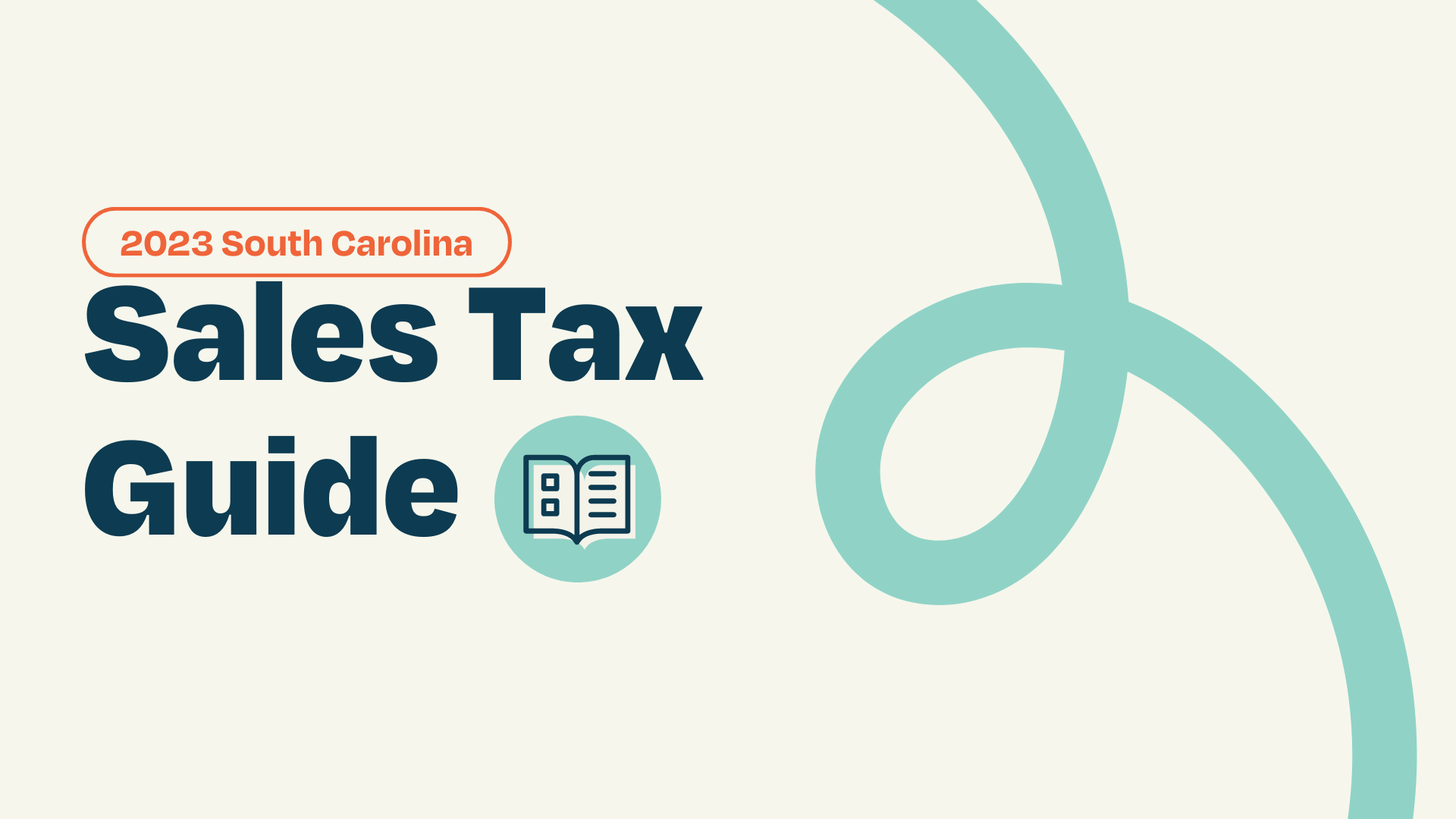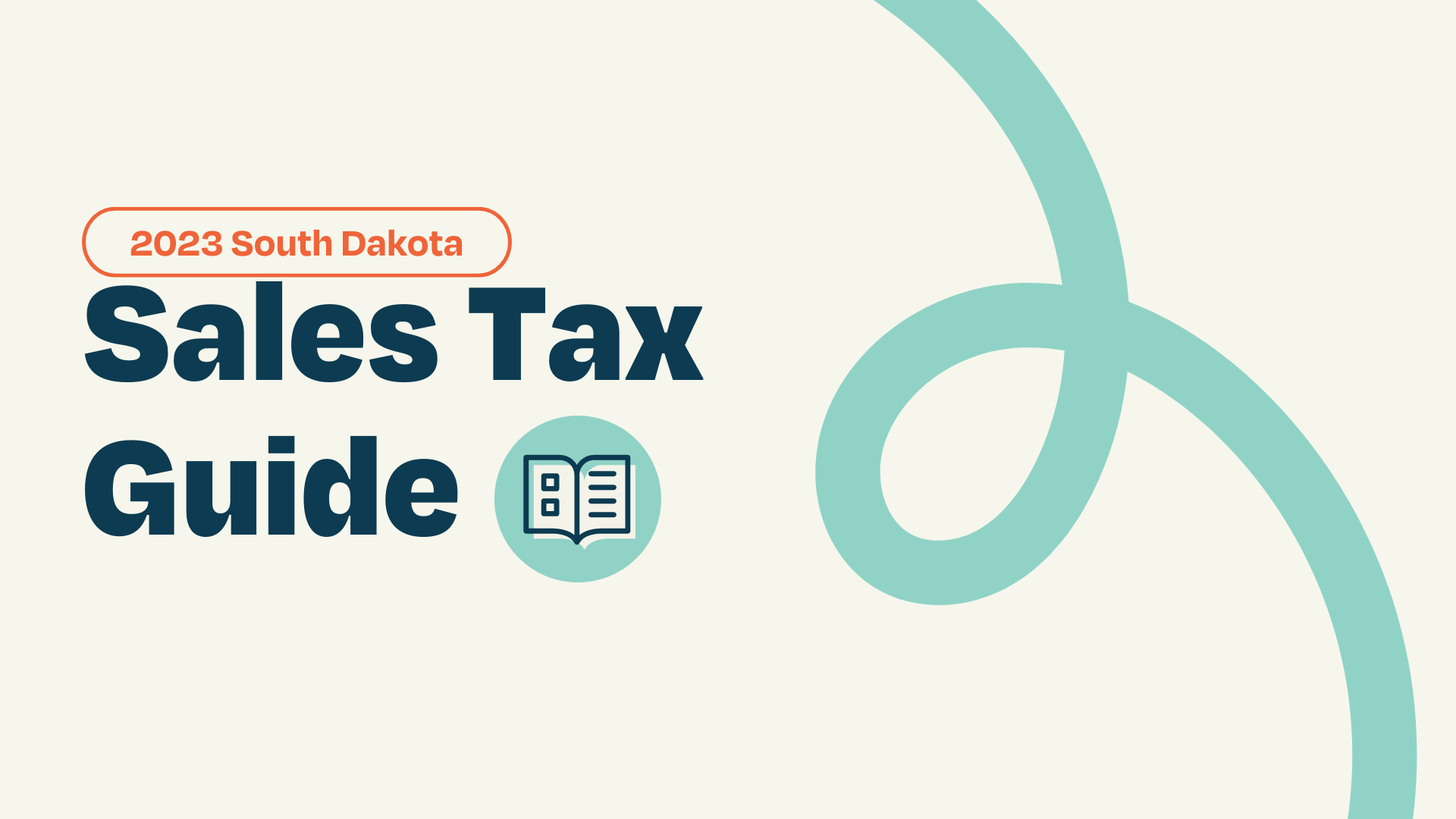South Carolina 2023 Sales Tax Guide
South Carolina Sales Tax in a Word Welcome, fellow adventurers! Are you ready to navigate the exciting waters of South Carolina sales tax? I...

Embarking on the Mississippi sales tax journey can feel like navigating a maze filled with twists, turns, and potential pitfalls. But fear not, brave small business owner! With the right knowledge, tools, and a little help from your trusty partners at Accountingprose, you can conquer sales tax with confidence and ease, leaving you more time to focus on growing your business.
In this comprehensive guide, we'll explore the ins and outs of filing and paying sales taxes in Mississippi, including when and how to file, handling weekends and holidays, potential penalties, available incentives, and tips to avoid common mistakes. So, don your sales tax superhero cape, and let's dive into this adventure together!
|
Table of Contents |
When navigating the world of sales tax in Mississippi, it's essential to know who manages it and how to reach them for support. Ready for a smooth sales tax adventure in the Magnolia State? Let's dive into the key contacts for Mississippi sales tax.
The Mississippi Department of Revenue (DOR) is responsible for administering, collecting, and enforcing sales tax in the state. The DOR ensures compliance with Mississippi sales tax laws and provides guidance and support to taxpayers.
If you need help or have questions about Mississippi sales tax, you can reach out to the Mississippi Department of Revenue using the contact information below:
Mailing Address:
Mississippi Department of Revenue
P.O. Box 1033
Jackson, MS 39215-1033
Street Address:
Mississippi Department of Revenue
500 Clinton Center Drive
Clinton, MS 39056
Phone Numbers:
Sales Tax Information: (601) 923-7000
Taxpayer Assistance: (601) 923-7700
Website
Mississippi Department of Revenue
When reaching out to the Mississippi Department of Revenue, remember that they're here to help you succeed in your sales tax journey. With the right resources and support, you can confidently tackle Mississippi sales tax and continue building your small business legacy. And, as always, your trusty sidekicks at Accountingprose are here to help you along the way, offering guidance and expertise in your small business adventure.
As small business heroes, it's crucial to understand the concept of nexus when dealing with sales tax. But what exactly does "nexus" mean, and how does it apply to your business in Mississippi? Fear not, for we're here to guide you through the ins and outs of sales tax nexus in the Magnolia State.
Sales tax nexus is a legal term that describes the connection between a seller and a state, which requires the seller to collect and remit sales tax on sales made within that state. In Mississippi, there are several types of nexus that can apply to your business, each with its own set of rules and triggers. Let's explore the different types of nexus in more detail.
Physical nexus is established when your business has a tangible presence within the state. This can include:
Having a brick-and-mortar store, office, or warehouse in Mississippi
Employing sales representatives or agents in the state
Holding inventory in the state, including consignment sales
If your business has a physical presence in Mississippi, you'll be required to collect and remit sales tax on sales made within the state.
Economic nexus is established when your business meets certain sales thresholds in Mississippi, even if it doesn't have a physical presence in the state. As of September 1, 2018, Mississippi enforces the following economic nexus threshold:
$250,000 or more in gross sales into Mississippi during the previous calendar year
If your business exceeds this threshold, you'll be required to collect and remit sales tax on sales made within Mississippi.
Affiliate nexus is established when your business has a relationship with another company or person in Mississippi, which helps you establish or maintain a market in the state. Examples include:
Owning or operating a subsidiary or sister company in Mississippi
Using third-party agents or representatives to promote or facilitate sales in the state
If your business has an affiliate relationship in Mississippi, you may be required to collect and remit sales tax on sales made within the state.
Click-through nexus is established when your business has a relationship with an affiliate in Mississippi who refers customers to your business through a website or online platform. Mississippi does not currently have click-through nexus legislation in place.
Marketplace nexus is established when your business sells products or services through a marketplace provider (such as Amazon, eBay, or Etsy) that has a presence in Mississippi. Under Mississippi law, marketplace providers are required to collect and remit sales tax on behalf of their sellers.
If your business sells through a marketplace provider, you may not need to collect sales tax on your own, as the provider may be handling it for you.
Understanding nexus is a crucial part of conquering Mississippi sales tax compliance. By knowing the various types of nexus and how they apply to your business, you'll be well-equipped to navigate the ever-changing landscape of sales tax. And as always, your loyal comrades at Accountingprose are here to help you every step of the way, providing expert advice, guidance, and support in your small business journey.
Before you can tackle Mississippi sales tax like the small business superhero that you are, you'll need to register for a sales tax license. This essential step allows you to legally collect and remit sales tax in the Magnolia State and ensures you stay compliant with Mississippi tax laws. So, strap on your registration cape, and let's dive into the process!
Registering for a sales tax license in Mississippi is a straightforward process that can be completed online. Follow these steps to get started:
Gather the necessary information: Before you begin the registration process, gather the required information, including your legal business name, mailing address, physical business location, contact information, Social Security number or federal tax ID (EIN), and North American Industry Classification System (NAICS) code.
Visit the Mississippi Taxpayer Access Point (TAP): Head over to the Mississippi Taxpayer Access Point (TAP), the online platform where you can register for a sales tax permit and manage your account.
Create a TAP account: If you don't have a TAP account yet, click on "Create a New TAP Account" and follow the instructions to set up your account. If you already have an account, log in and proceed to the next step.
Select "Register a New Business": Once logged in, navigate to the "Business" tab and click on "Register a New Business." This will open the registration application.
Complete the application: Fill out the application with the required information, including your business details, ownership information, and tax permit details. Be sure to review your information for accuracy before submitting the application.
Submit the application: After completing the application, click "Submit" to send it to the Mississippi Department of Revenue. You'll receive a confirmation message and a tracking number for your application.
Await approval: The Mississippi Department of Revenue will review your application, which typically takes 1-2 weeks. Once approved, you'll receive your sales tax permit and account number via mail or email.
Remember, your trusty sidekicks at Accountingprose are here to help you navigate the registration process. Don't hesitate to reach out for guidance and support!
Good news, small business champions! Registering for a Mississippi sales tax license is free! There are no fees associated with the application process, so you can focus on saving the day and growing your business.
Yes, you will typically need a Federal Tax ID Number, also known as an Employer Identification Number (EIN), to register for a Mississippi sales tax license. The EIN is used to identify your business for tax purposes and is required when applying for a sales tax permit.
If you don't have an EIN yet, you can obtain one for free from the IRS website.
In addition to registering for a sales tax license with the Mississippi Department of Revenue, you may need to register your business with other agencies, depending on your specific business activities. Some common agencies that small businesses may need to register with include:
Mississippi Secretary of State: If you're forming a corporation, LLC, or partnership, you'll need to register with the Mississippi Secretary of State.
Mississippi Department of Employment Security: If you have employees, you may need to register with the Mississippi Department of Employment Security for unemployment insurance and wage reporting.
With your Mississippi sales tax registration complete, you'll be well on your way to conquering sales tax compliance in the Magnolia State. And remember, your dedicated partners at Accountingprose are always here to support you in your small business journey, offering expert advice at every turn.
Now that you're registered and ready to conquer sales tax in Mississippi, it's time to dive into the nitty-gritty of collecting sales tax and staying compliant. In this section, we'll explore how Mississippi handles sales tax, which sales are subject to tax, and how to handle exemptions. So, let's suit up and get started!
Mississippi is a destination-based sales tax state. This means that sales tax is based on the location of the buyer, not the location of the seller. As a small business hero, you'll need to calculate the sales tax rate for each sale based on the buyer's location, which can include both state and local sales tax rates.
In Mississippi, sales tax applies to the sale of tangible personal property and certain services. Some examples of taxable goods and services include:
Furniture, appliances, and electronics
Clothing and accessories
Prepared food and beverages
Non-prescription drugs and medicines
Admissions to amusement parks, sporting events, and concerts
Repair and maintenance services for tangible personal property
It's important to familiarize yourself with the specific taxable products and services in Mississippi to ensure you're collecting sales tax accurately.
Software as a Service (SaaS) is not currently taxed in Mississippi. However, tax laws are always subject to change, so it's essential to stay up-to-date with the latest legislation affecting your business.
In the realm of Mississippi sales tax, there are several exemptions to be aware of. Some common examples of exempt goods and services include:
Prescription drugs and medicines
Groceries (unprepared food for home consumption)
Certain agricultural products and machinery
Newspapers and periodicals
Educational, religious, and charitable organization purchases
Certain organizations and individuals may be eligible for Mississippi sales tax exemptions, including:
Nonprofit educational, religious, and charitable organizations
Government agencies
Farmers and agricultural producers
Manufacturers purchasing production equipment and materials
To be eligible for a sales tax exemption, the buyer must provide the seller with a valid Mississippi Sales Tax Exemption Certificate.
When a customer claims sales tax exemption, you must collect a valid Mississippi Sales Tax Exemption Certificate from the buyer and keep it on file. Be sure to verify the exemption certificate's accuracy and maintain thorough records, as you may need to present this documentation during a sales tax audit.
If you lose a Mississippi Sales Tax Exemption Certificate, it's crucial to act swiftly and request a replacement from the buyer. Maintaining complete and accurate records is essential for sales tax compliance, and losing an exemption certificate can leave your business vulnerable during an audit.
Collecting sales tax in Mississippi may seem daunting, but with a clear understanding of the state's rules and regulations, you'll be well on your way to sales tax success. And, if you are ready to work with Mississippi sales tax experts, get in touch with us here.
Once you've mastered collecting sales tax in Mississippi, it's time to tackle the next challenge: filing and paying your sales taxes. In this section, we'll cover when and how to file your sales tax return, how to handle weekends and holidays, potential penalties, and any sales tax incentives available. So, grab your cape and let's get started!
The frequency at which you file and pay sales tax in Mississippi depends on the amount of sales tax you collect. There are three filing frequencies:
Monthly - If you collect more than $300 in sales tax per month, you are required to file and pay your sales tax on a monthly basis. Monthly returns are due on the 20th of the following month.
Quarterly - If you collect between $100 and $300 in sales tax per month, you'll need to file and pay your sales tax on a quarterly basis. Quarterly returns are due on the 20th of the month following the end of the quarter.
Annual - If you collect less than $100 in sales tax per month, you can file and pay your sales tax annually. Annual returns are due on January 20th of the following year.
If your Mississippi sales tax filing deadline falls on a weekend or holiday, fear not! The deadline is extended to the next business day. So, you can enjoy your well-deserved break and tackle your sales tax return when the time is right.
Filing your Mississippi sales tax return is a simple process that can be completed online. Follow these steps to ensure a smooth and accurate filing experience:
Gather your sales records: Before you begin, collect your sales records for the filing period. You'll need to report total sales, taxable sales, and sales tax collected for each jurisdiction where you have a sales tax obligation.
Log in to the Mississippi Taxpayer Access Point (TAP): Head over to the Mississippi Taxpayer Access Point (TAP) and log in to your account.
Select "File a Return": Once logged in, navigate to the "Sales Tax" tab and click on "File a Return." This will open the sales tax return form for the applicable filing period.
Complete the sales tax return form: Fill out the sales tax return form with the required information, including your total sales, taxable sales, and sales tax collected for each jurisdiction. Be sure to double-check your numbers for accuracy before submitting the form.
Submit your payment: After completing the sales tax return form, you'll need to submit your payment for the sales tax due. You can pay your sales tax online through the Mississippi TAP using an electronic check, credit card, or ACH debit.
Keep a record of your filed return: Once you've filed your sales tax return and submitted your payment, be sure to keep a record of the filed return and payment confirmation for your records.
Remember, your super sidekicks at Accountingprose are here to help you navigate the sales tax filing process. Don't hesitate to reach out for guidance and support!
Failing to file and pay your sales tax on time can result in various penalties in Mississippi, including:
Late filing penalty: A late filing penalty of 10% of the tax due or $50, whichever is greater, will be assessed for each return not filed by the due date.
Late payment penalty: A late payment penalty of 10% of the tax due will be assessed for each payment not made by the due date.
Interest: Interest will be charged on any unpaid tax balance, calculated from the due date until the tax is paid in full.
To avoid these penalties and maintain your small business superhero status, it's essential to file and pay your sales tax on time.
Mississippi offers various sales tax incentives to eligible businesses, including:
Industrial sales tax exemptions: Manufacturers, processors, and certain other industries may be eligible for sales tax exemptions on equipment, materials, and supplies used in production.
These incentives can help you grow your business and keep more of your hard-earned revenue. Be sure to research the available incentives and consult with a tax professional to determine your eligibility.
With a solid understanding of the filing and payment process, you'll be well on your way to sales tax success in Mississippi.
Filing Mississippi sales tax returns can be a complex task, but with a little preparation and know-how, you can avoid common mistakes and keep your small business sailing smoothly. Here are five tips to help you stay on course and maintain your superhero status:
Stay organized with your sales records: Keeping accurate and up-to-date sales records is crucial for filing error-free sales tax returns. Make sure to track your total sales, taxable sales, and sales tax collected for each jurisdiction. Using accounting software or working with a trusted bookkeeping partner like Accountingprose can help you maintain organized records and make the filing process a breeze.
Verify tax rates for each jurisdiction: As a destination-based sales tax state, Mississippi requires you to collect sales tax based on the buyer's location. This means you need to be aware of the state and local rates for each jurisdiction. Use an up-to-date sales tax rate lookup tool or a sales tax automation software to ensure you're calculating the correct rates for each sale.
Don't miss filing deadlines: Missing filing deadlines can lead to penalties and interest, hurting your bottom line. Mark your calendar with your filing due dates, whether they're monthly, quarterly, or annually, and set reminders to make sure you don't miss them. If a deadline falls on a weekend or holiday, remember that it's automatically extended to the next business day.
Double-check your exemption certificates: When a customer claims a sales tax exemption, it's essential to collect a valid Mississippi Sales Tax Exemption Certificate and verify its accuracy. Keep these certificates well-organized and readily accessible, as you may need to present them during a sales tax audit. Also, be aware of any changes in exemption laws that could affect your customers' eligibility.
File and pay your sales tax electronically: Filing your sales tax return and submitting your payment online through the Mississippi Taxpayer Access Point (TAP) streamlines the process and helps reduce the risk of errors. Before submitting your return, double-check your numbers for accuracy and make sure you've entered the correct information for each jurisdiction.
By following these five tips, you can avoid common mistakes and ensure a smooth and accurate sales tax filing experience in Mississippi. And, if you are ready to work with Mississippi sales tax experts, get in touch with us here.
Navigating the world of Mississippi sales tax can be a daunting task, but with the right tools, knowledge, and a little help from your friends at Accountingprose, you can overcome any challenge and keep your small business on the path to success. By staying organized, utilizing accurate tax rates, adhering to filing deadlines, verifying exemption certificates, and filing electronically, you can avoid common mistakes and sail smoothly through the sales tax filing process.
|
Ready to work with a Mississippi sales tax expert? We've love to work with you! |
|
Alaska Sales Tax Guide (N/A) |
||||
|
Montana Sales Tax Guide (NA) |
||||
|
Oregon Sales Tax Guide (N/A) |
||||
|
Delaware Sales Tax Guide (N/A) |
||||
|
New Hampshire Sales Tax Guide (NA) |
||||
And don't forget to check out our blog about Economic Nexus, which serves as an invaluable resource for businesses who have sales that are subject to sales tax.
This blog is for informational purposes only and the information is accurate as of 2023-06-19. If you want legal advice on sales tax law for your business, please contact a State and Local Tax (SALT) professional. Keep in mind that sales tax regulations and laws are subject to change at any time. While we strive to keep our blog current, this blog possibly may be out of date by the time you review it.

South Carolina Sales Tax in a Word Welcome, fellow adventurers! Are you ready to navigate the exciting waters of South Carolina sales tax? I...

South Dakota Sales Tax in a Word Hello, trailblazers! Today, we're embarking on an expedition across the wide-open prairies of South Dakota...

Utah Sales Tax in a Word Welcome, partners, to our delightful journey through the scenic landscapes of Utah sales tax! As you embark on...